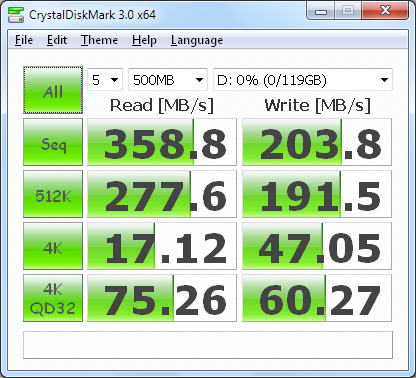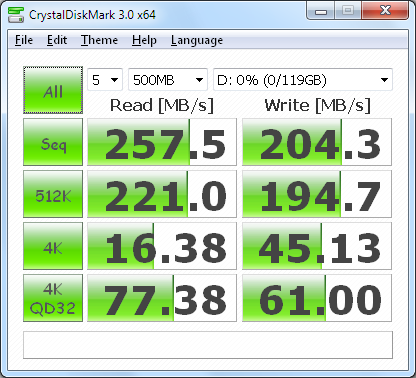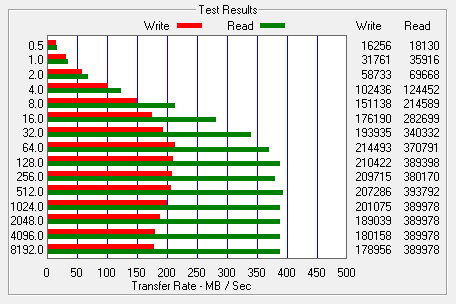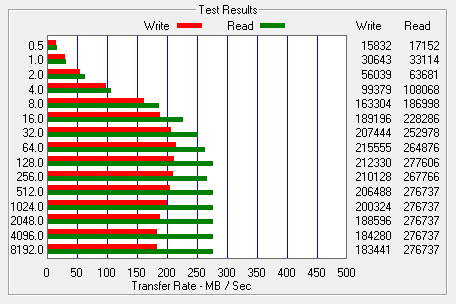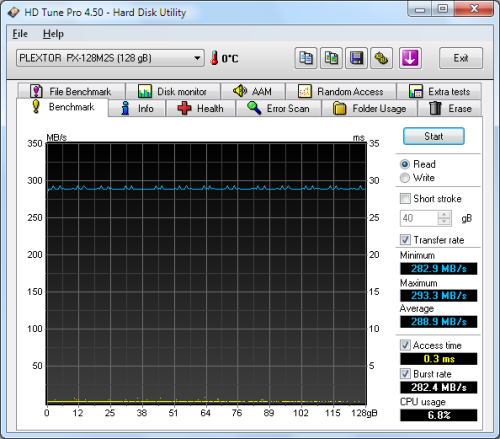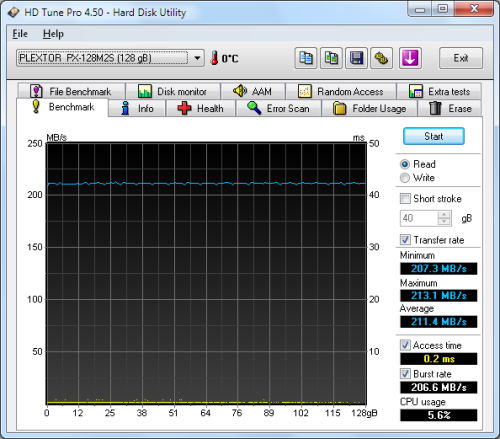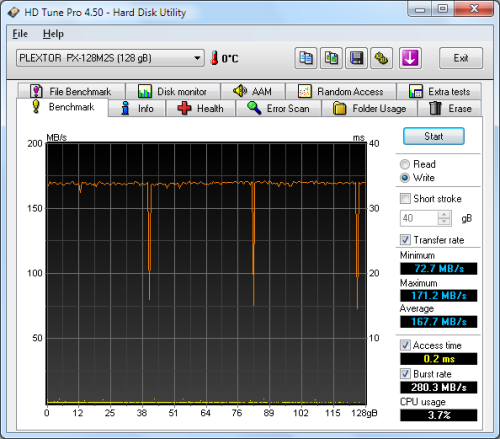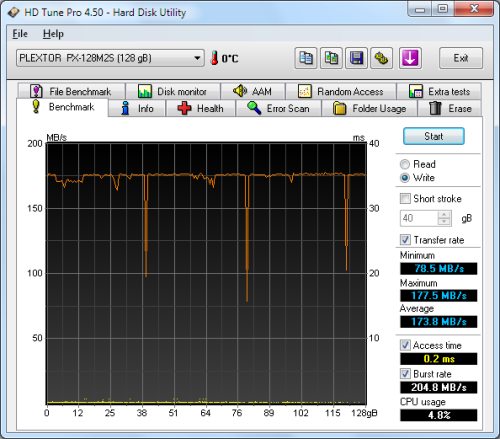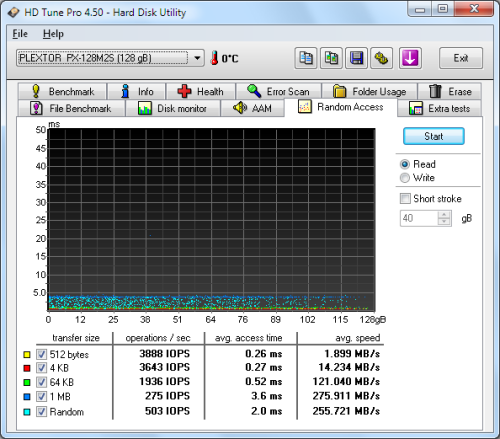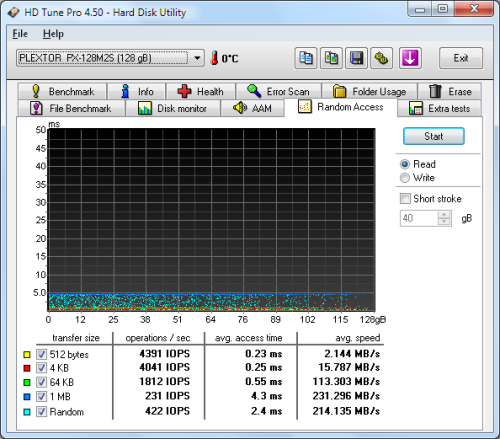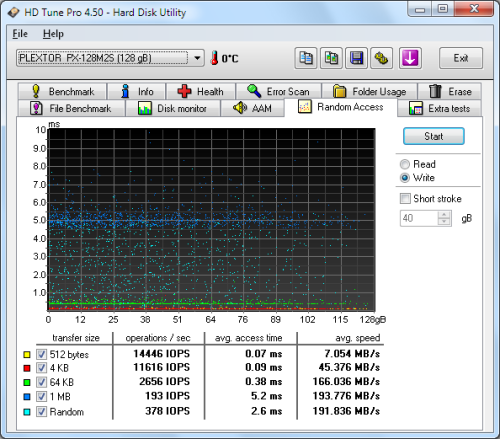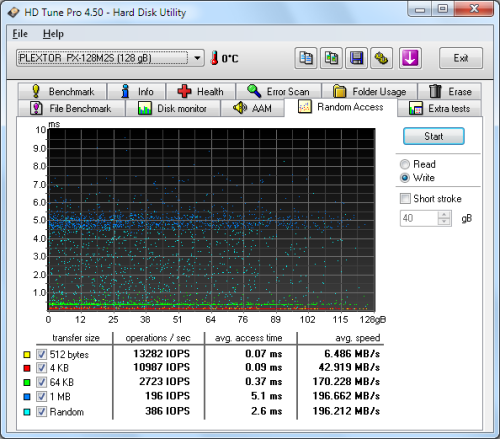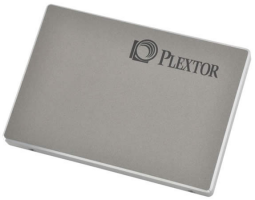

Model: Plextor PX-128M2S 128GB Solid State Drive
Manufacturer: Plextor
Provided By: Plextor LLC
As one of the biggest names in the storage industry, Plextor doesn't need much of an introduction. For more than a decade, they've produced some of the best optical drives the industry has seen. Known the world over for their quality, performance and features, these drives have become favorites among consumers and professionals alike. Today, Plextor continues to lead the way by bringing cutting edge storage technologies to market. Along with a vast assortment of high-performance DVD and Blu-ray drives, the company offers a growing number of NAS devices, external hard drives and solid state drives.
At the 2011 Consumer Electronics Show, Plextor unveiled its new PX-M2 series SSDs. Designed by Philips & Lite-On Digital Solutions (PLDS), the PX-64M2S, PX-128M2S and PX-256M2S are powered by Marvell's 88SS9174 controller chip and packs 128MB of on-board cache as well as a SATA 6Gb/s interface. Plextor's PX-M2 series SSDs also feature support for the Windows 7 TRIM command, dynamic wear leveling and the company's own Instant Restore technology which overcomes the problem of slower performance after prolonged usage.
For this review, Plextor sent us the PX-128M2S. This 128GB SSD is capable of delivering up to 420MB/s sequential read and 210MB/s sequential write speeds as well as up to 15,000 random read and 9,000 random write IOPS.
| Plextor PX-128M2S 128GB Solid State Drive | |||||||||||||||||||||||||||||||||||||
General Specifications
Performance
Reliability
Power Consumption
Environmental
Dimensions and Weight
Other Features
|
Needless to say, this is only a taste of what the PX-128M2S has to offer. To give you an idea of what to expect, we'll take a closer look at Plextor's new 128GB SSD and then see how well it performs. Does the PX-128M2S have what it takes? Can it deliver the performance and features that we've come to expect from Plextor? Keep reading as we find out.
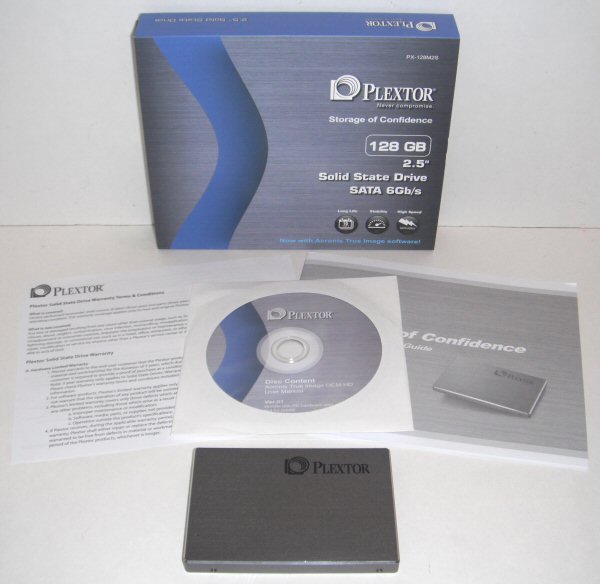
The PX-128M2S comes in a small, blue and silver box. While there aren't a lot of details on the front, the back of the box has a small picture of the SSD as well as some information regarding its features, specifications and box contents. Inside, you'll find the SSD, a quick installation guide, warranty card and a CD containing Acronis True Image.
Physical Features:
Like Plextor's PX-M1 series SSDs, the PX-128M2S is very well constructed. The drive's outer casing is made out of cast aluminum. Along with it being strong and durable, the casing is very lightweight. On top of that, its brushed aluminum finish and machined edges look great.

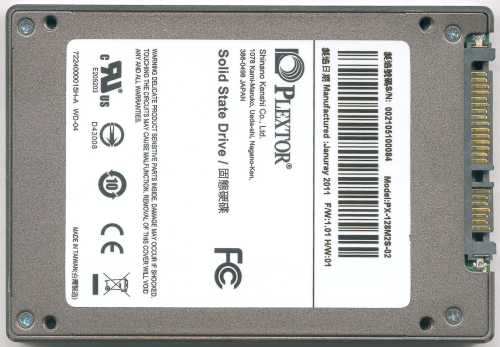
Upon opening the case, I was a bit surprised to see how small the PX-128M2S's PCB was. For whatever reason, Plextor has placed a 1.8" form factor PCB inside of a 2.5" case. The only real reason I can see for this is that Plextor plans to offer a line of 1.8" SSDs in the near future.
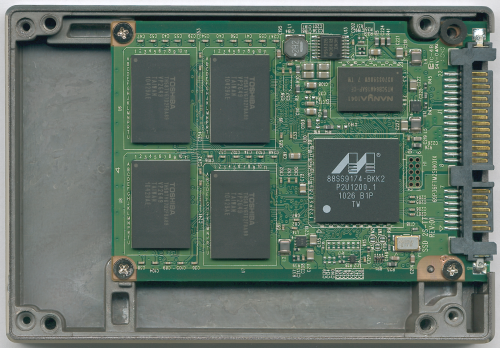
As I mentioned earlier, the PX-128M2S uses Marvell's 88SS9174-BKK2 controller chip. The 88SS9174-BKK2 can be found in a number of other high-performance SSD's including the Corsair Performance 3 Series and Intel SSD 510 Series.
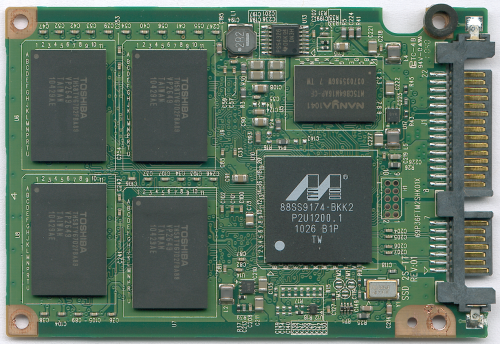
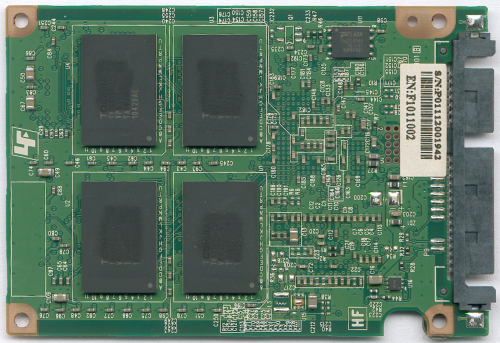
Looking at the pictures above, you can see that both sides of the PCB are covered in memory chips. For the PX-128M2S, Plextor opted to use Toshiba's 32nm TH58TVG7D2FBA89 Toggle Mode NAND flash chips. The drive also has a single 128MB Nanya NT5CB64M16AP-CF DDR3-1333 memory chip that is used for caching and garbage collection.
The test system used in this review was an HP dc7900. The computer came equipped with an Intel Core 2 Duo E8400 3.0GHz CPU, 2GB of DDR2 800MHz memory, Seagate Barracuda 7200.10 ST3250310AS 250GB SATA hard drive, NVIDIA Quadro FX570 256MB PCIe graphics card, Intel 82567LM-3 gigabit network card and HighPoint Rocket 620 SATA 6Gb/s controller. For the operating system, I installed a fresh copy of Windows 7 Enterprise.
To test the performance of the Plextor PX-128M2S, I ran a series of benchmarks using CrystalDiskMark 3.0, HD Tach RW 3.0.4.0, ATTO Disk Benchmark 2.46, HD Tune Pro 4.50 and Iometer.
CrystalDiskMark 3.0:
First, I ran a few quick tests using CrystalDiskMark. This benchmark tool measures the performance of a storage device by testing its sequential read and write speeds as well as its random read and write speeds using blocks 512K and 4K in size.
According to Plextor, the PX-128M2S is capable of reading at 420MB/s and writing at 210MB/s when connected to a SATA 6 Gb/s port. While the drive performed well, its sequential read and write speeds came up a bit short of these numbers in our tests.
HD Tach RW 3.0.4.0:
Next, I used HD Tach to test the PX-128M2S's read, write and burst speeds as well as its seek times and CPU usage.
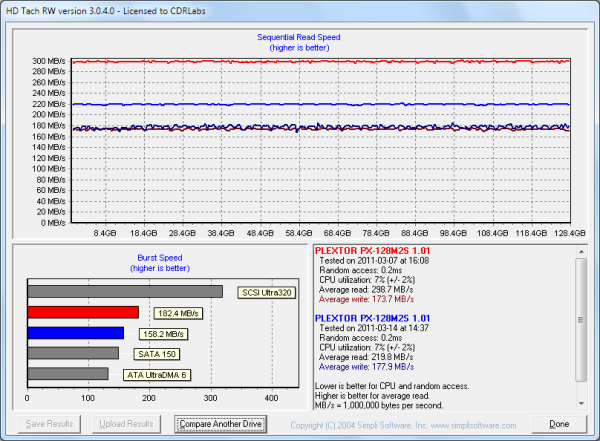
When connected to the HighPoint Rocket 620 SATA 6Gb/s controller card, the PX-128M2S had average read and write speeds of 298.7 MB/s and 173.7 MB/s, respectively, as well as a burst speed of 182.4 MB/s. Using the motherboard's SATA 3 Gb/s ports didn't have much of an effect on the drive's write speeds. However, its read speeds dropped by nearly 80 MB/s.
ATTO Disk Benchmark 2.46:
I also used ATTO Disk Benchmark to test the PX-128M2S's sequential read and write speeds. The tests are run using blocks ranging in size from 0.5KB to 8192KB and the total length set to 256MB.
When tested with ATTO, the PX-128M2S's read speeds topped out at about 393 MB/s and its write speeds at 214 MB/s.
HD Tune Pro 4.50:
Next, I ran a series of tests using HD Tune Pro. This hard disk utility measures a drive's performance by testing its sequential read and write speeds as well as its access time, burst rate and CPU usage. For this review, I'm also going to use it to benchmark the PX-128M2S's random read and write speeds, random access times and the number of operations per second.
The PX-128M2S performed fairly well when connected to the HighPoint Rocket 620 SATA 6Gb/s controller card. The drive had average read and write speeds of 288.9 MB/s and 167.7 MB/s, respectively, and a burst rate of 280 MB/s.
As you'd expect, the PX-128M2S performed better when using SATA 6Gb/s. In our tests, the drive achieved 11616 IOPS and an average speed of 45.376 MB/s when writing 4K blocks. Unfortunately, the PX-128M2S did not perform nearly as well when reading. Looking at the screenshot above, you can see that the drive achieved only 3643 IOPS and an average speed of 14.234 MB/s.
Iometer:
Lastly, I ran a series of tests using Iometer. This tool can be configured to benchmark a number of things. In this case, I used it to measure the PX-128M2S's read and write speeds and the number of operations per second. These tests were run using blocks ranging from 512B to 2MB in size and a queue depth of 3.
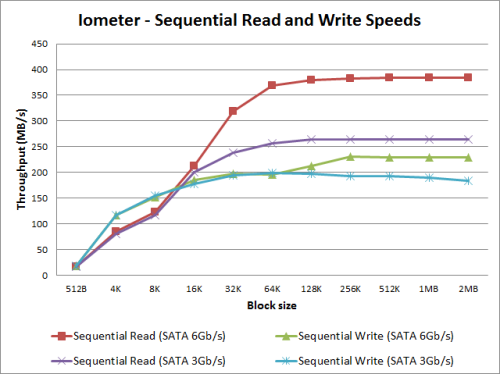
The PX-128M2S's performance was very similar to what we saw in our other tests. With a 2MB block, the drive reached sequential read and write speeds of 384.10 MB/s and 229.47 MB/s, respectively.
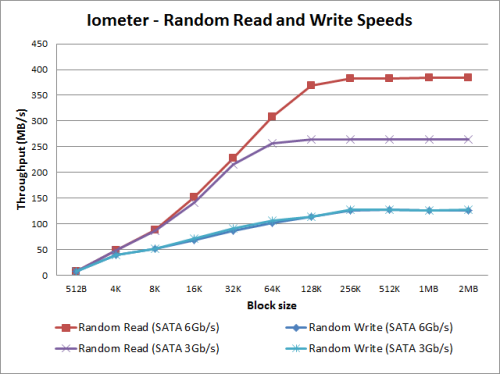
When doing random reads, the PX-128M2S was able to reach speeds as high as 383.85 MB/s. However, its random write speeds dropped down to about 126 MB/s.
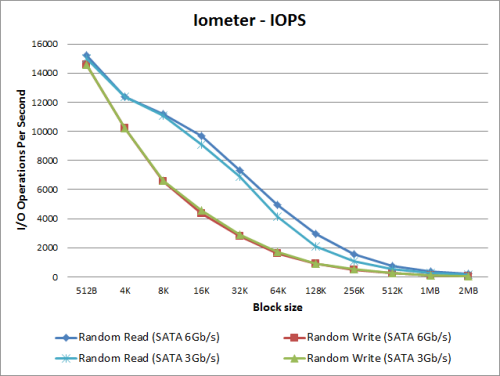
According to Plextor, the PX-128M2S is capable 15,000 IOPS when reading and 9,000 IOPS when writing 4K blocks. In our tests, the drive reached 12,381 IOPS when doing a random read and 10,213 IOPS when doing a random write.
TRIM and Instant Restore:
While SSD's offer many benefits, there are some downsides to using flash memory. One of the biggest issues people run into is performance degradation. Over time, an SSD will run out of fresh blocks and will have to write over data the file system has marked as deleted. This procedure is very complicated and can slow an SSD's write speeds considerably.
To fix this problem, most manufacturers have added TRIM support to their SSDs. The TRIM command allows an operating system, such as Windows 7, to tell an SSD which data blocks are no longer in use. Using this information, the drive pro-actively erases these blocks and adds them to the free block pool.
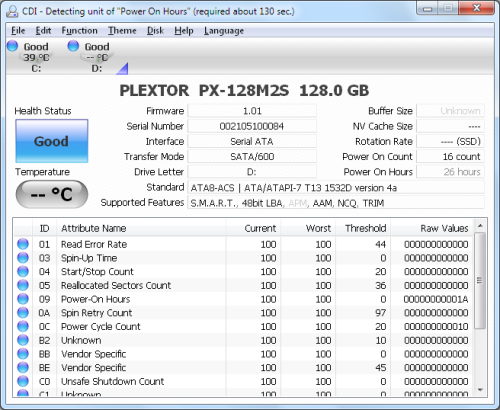
Unlike Plextor's original PX-M1 series SSDs, the PX-128M2S supports TRIM out of the box. To see how well their implementation of TRIM worked, I tried to put the drive in a "dirty" state. This was easier said than done though thanks to Plextor's new Instant Restore technology. This advanced garbage collection technique maintains "like new" performance by reorganizing data to maximize the number of free cells. Instant Restore does an excellent job of this as I saw very little performance degradation, even after hours of testing.
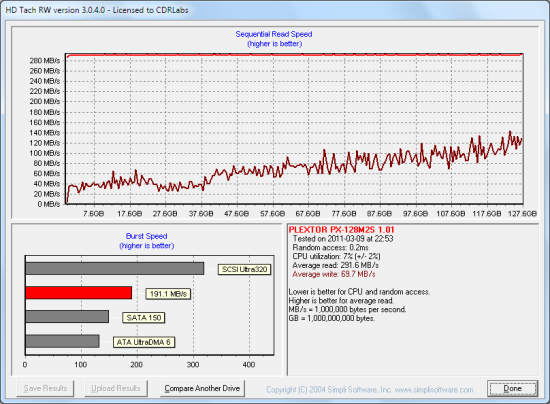
Plextor PX-128M2S - Dirty
I was finally able to overwhelm Instant Restore by using Iometer to fill the entire drive and then running a random write test for 20 minutes. Looking at the screenshot above, you can see that the PX-128M2S's average write speed dropped to a mere 69.7 MB/s when in this "dirty" state.
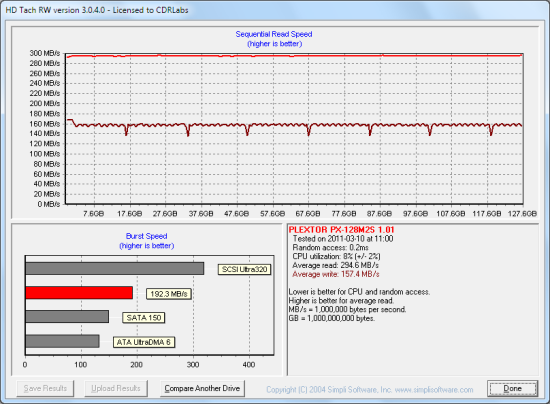
Plextor PX-128M2S - Clean
To see how well the PX-128M2S could recover, I let the computer sit overnight and then reran the test. While the drive wasn't able to reach the factory fresh performance shown in our earlier tests, its average write speed jumped up to 157.4 MB/s.
Final Thoughts:
Despite their success in the storage industry, Plextor's initial SSD offerings did not go over as well as many expected. The performance of the PX-M1 series was average at best and the garbage collection technology was a poor substitute for TRIM. Plextor has apparently taken these criticisms to heart as the PX-128M2S is an entirely different beast. Thanks to its Marvell 88SS9174 controller and SATA 6Gb/s interface, the drive performed very well in our sequential read and write tests, reading at speeds as high as 393 MB/s and writing at speeds in excess of 200 MB/s. The PX-128M2S didn't perform quite as well when doing random reads and writes. However, this was offset somewhat by Plextor's Instant Restore technology which did a great job of maintaining "like new" performance, even after long periods of use.
Another thing Plextor seems to have learned a bit about is price. Where the PX-M1 series commanded a hefty price tag, the PX-128M2S and the rest of the drives in the PX-M2 series are actually reasonably priced. Prices range from $180 for the PX-64M2S up to $570 for the PX-256M2S. The PX-128M2S reviewed here is about $280, which is $40 cheaper than Corsair's 128GB Performance 3 Series SSD. Considering they're based on the same design, the Plextor is still the better deal even though it doesn't include an adapter bracket.
Highs:
- Excellent sequential read and write speeds
- SATA 6Gb/s interface
- 128GB capacity
- Well constructed aluminum casing
- 128MB on-board cache
- Instant Restore helps maintain "like new" performance
- Supports TRIM, SMART, NCQ and Dynamic Wear Leveling
- Low power consumption
- Includes Acronis True Image
- 3 year warranty
- Reasonably priced
Lows:
- Mediocre random read and write performance
- Does not include a 2.5" to 3.5" adapter bracket
